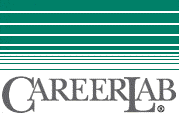The Best Way to Organize Your Job Search
Question:
How do I organize my job search?
Answer:
Label 17 file folders with the headings below. Using them is easy. Review all the folders every day for a few weeks until you get the hang of it. This system will make your job hunting life much easier:
- "A" Prospects - The "hot ones" you don't want to lose track of. Watch them daily.
- Add to Network - Names, addresses and telephone numbers you want to add to your database.
- Hold - Maps, directions to meetings, anything you may need later, but not on a specific date. Everything associated with a specific date goes into the follow-up file (described later).
- Hunches - Clippings of news stories where there might be job opportunities: plant openings, new product announcements, company growth, promotions, mergers. You could have three folders: a) Local Hunches; b) Regional Hunches; and c) National Hunches.
- Ideas/Strategies - Any brainstorm you get that could help you later. Example: "To reach hiring manager, call early a.m. or late p.m. before the secretary arrives or after she leaves." If you get a letter with a business reply card in it and decide to do something similar, the card goes into your "Idea" file.
- Junk Mail - Letters and marketing pieces that contain good ideas that could be adapted for the job search. Example: Your insurance agent sends you a warm, friendly letter, and you want to remember the salutation. Save it here.
- Marketing Letters - High-powered letters you might want to re-send to a different reader. You could add additional folders for: a) Friend Letters, b) Search Letters, c) Thank You Letters, d) Want Ad Letters, and e) Reference Letters.
- Meeting Announcements - Brochures or clippings describing conferences, conventions, business meetings.
- No Interest NOW - Don't throw your notes and records away when someone indicates lack of interest. Save them here. Review them in four to six weeks. Things often change. "No" doesn't always mean "never."
- Postage - Stamps in all denominations, especially 32 and 55 cents.
- Proposals/Samples - If employers have asked for proposals describing how you would solve a problem, they are filed here. (Work samples could go here too, or in a separate file.)
- Prospect List - A list of all the companies and individuals that might be of interest. (Also a list of companies that aren't of interest?)
- RECAP - A daily journal of all your phone calls and correspondence so you can remember who you called and what you sent.
- Resume - If more than one version, label files "Resume One," "Resume Two," and "Resume Three."
- Send Something - The names and addresses of people you've promised a letter, a resume, a proposal, a gift, a marketing package, or a thank you note.
- Stationery - Your printed letterhead, envelopes, and business cards.
- Telephone Scripts - Notes to plan for future telephone conversations: what you'll say, what they might say. Answers to key objections. Major accomplishments. Answers to difficult interview questions.
Follow-Up
Get a 9 x 12" expanding file numbered 1 to 31 (for the days of the month. Every time you send a letter, decide when you should follow up and put your letter into that slot. Example: a breakfast meeting on the 18th should go into the section marked 18, and so forth. Check the file daily to see what to do. This is the easy way to keep important details from falling through the cracks.
Voice Mail
Telephone answering is essential. Don't leave your telephone unanswered, even occasionally. And please, use a business-like message. No cute children's messages on the voice mail.
Tinker with your tracking system. Add new file folders. When files become too thick, when it takes more than a few seconds to find a document, subdivide files into separate categories. You could color code your system too, using yellow folders for letters, and red for resumes, for example. It's fun to be organized, and being organized will shorten your job search. The organized person gets more done in less time, thus gets re-employed quickly. The disorganized campaigner can never seem to find his or her notes.
 William S. Frank, M.A., is founder and President of CareerLab. Since 1978, he has
devoted more than 20,000 hours as a career, outplacement, and human resources consultant
to employees, managers, senior executives, and boards of directors of more than 200
major U.S. corporations. He wrote 200 Letters For Job Hunters, published by Ten Speed
Press, and he created the RED HOT Cover Letter collection in the Career Center at
America Online, which is visited by more than 1,000,000 visitors per month. For more
information about CareerLab, visit class.newspress.com/sect/employment.
William S. Frank, M.A., is founder and President of CareerLab. Since 1978, he has
devoted more than 20,000 hours as a career, outplacement, and human resources consultant
to employees, managers, senior executives, and boards of directors of more than 200
major U.S. corporations. He wrote 200 Letters For Job Hunters, published by Ten Speed
Press, and he created the RED HOT Cover Letter collection in the Career Center at
America Online, which is visited by more than 1,000,000 visitors per month. For more
information about CareerLab, visit class.newspress.com/sect/employment.


